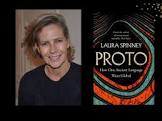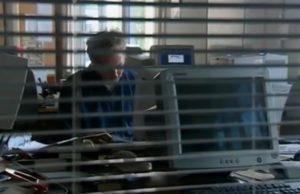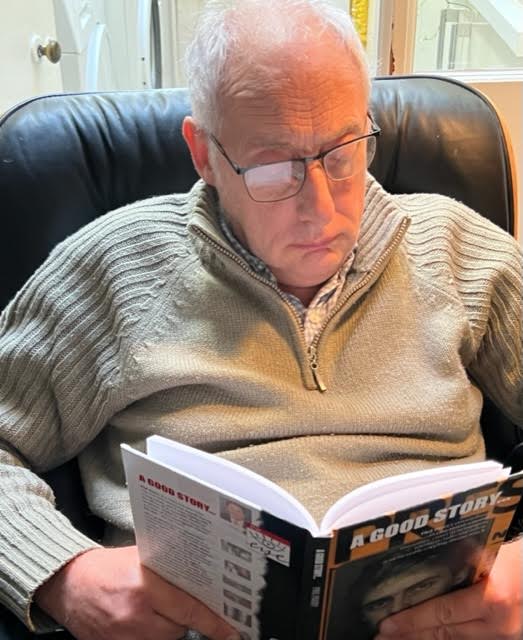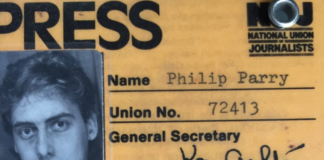- Bombs away! - 28th February 2026
- Massaging the truth - 27th February 2026
- ‘It’s the new economy, stupid…’ - 27th February 2026

During 23 years with the BBC, and a 41 year journalistic career (when he was trained to use clear and simple language, avoiding jargon), for our Editor, Welshman Phil Parry, communication has been all-important, and now this is put centre stage by a new book about where the tongues come from.
It should come naturally for journalists like me, as for everyone else.
If, however, you look into where language comes from you realise it is actually quite complicated, and the discovery of its roots only came relatively recently.
 Now this is emphasised by a new book called ‘Proto’ by another journalist and author, Laura Spinney.
Now this is emphasised by a new book called ‘Proto’ by another journalist and author, Laura Spinney.
The title, incidentally, is a reference to one categorisation: ‘Proto Indo-European (PIE)’.
It was first spoken (it is thought) by as little as a few dozen people around the Black Sea then, roughly 5,000 years ago, spread with rapidity “from Ireland to India”.

Today, its offshoots include Irish and Hindi—and more or less everything in between. Almost half of the world’s population speaks a descendant of it.
PIE is long dead, but traces of it remain caught, like insects in amber, in modern languages, allowing academics (and journalists), to bring it back to life.
Scholars know that its speakers (perhaps) had the wheel (*keklos, in PIE’s odd transcription, seen in the English ‘circle’ and ‘wheel’ itself); as well as fields (*h₂egros—’agriculture’), They also drank mead, and that’s in it too (*medhu).
Researchers also think they know that speakers found visitors irritating: the PIE word “*ghostis” gives English not just ‘guest’ but ‘ghost”’ and Latin its word for ‘host’, but also ‘enemy’.


Its ancient wordscapes are enlightening, if at times puzzling.
For example a hero was “one who urinated standing up” – which feels like a low bar!
In Wales we are privileged to have a language which (probably) has a completely different root.
Welsh evolved (perhaps) from Common Brittonic, with the Celtic language spoken by the ancient Celtic Britons.
Classified as ‘Insular Celtic’, it is likely that the language arrived in Britain during the Bronze Age or Iron Age, and may have been spoken by everyone south of the Firth of Forth at one point.
 During the early Middle Ages the British language began to fragment due to increased dialect differentiation, thus evolving into Welsh and the other Brittonic languages.
During the early Middle Ages the British language began to fragment due to increased dialect differentiation, thus evolving into Welsh and the other Brittonic languages.
It is not clear when Welsh became distinct – indeed nothing is clear and it is the subject of fierce debate among scholars.
Linguist Kenneth H. Jackson has suggested that the evolution in syllabic structure and sound pattern was complete by around AD 550, and labelled the period between then and about AD 800 “Primitive Welsh”.

This ‘Primitive Welsh’ may have been spoken in both Wales and the Hen Ogledd (‘Old North’) – the Brittonic-speaking areas of what are now northern England and southern Scotland – and therefore may have been the ancestor of Cumbric as well as Welsh.
Some believe, though, that the two varieties were already distinct by that time.
What is certain, however, is how important language is.
As I know only too well!

The memories of Phil’s astonishing, decades long award-winning career in journalism (when the correct use of language has always been central) as he was gripped by the rare neurological disabling condition Hereditary Spastic Paraplegia (HSP), have been released in another book ‘A Good Story’. Order it now.
Proto: How One Ancient Language Went Global. by Laura Spinney. Bloomsbury; 352 pages; $29.99. William Collins; £22

Tomorrow – how more evidence of a huge battery park rising in the United States of America (USA), and growing use of renewable batteries around the world, highlight concerns about public funding given to a firm which offered multi-million pound plans for a Welsh version, but abandoned them soon afterwards, had a director with an interesting past which was exposed by The Eye, and our story about them attracted threats of legal action despite the fact that all information was in the public domain.










